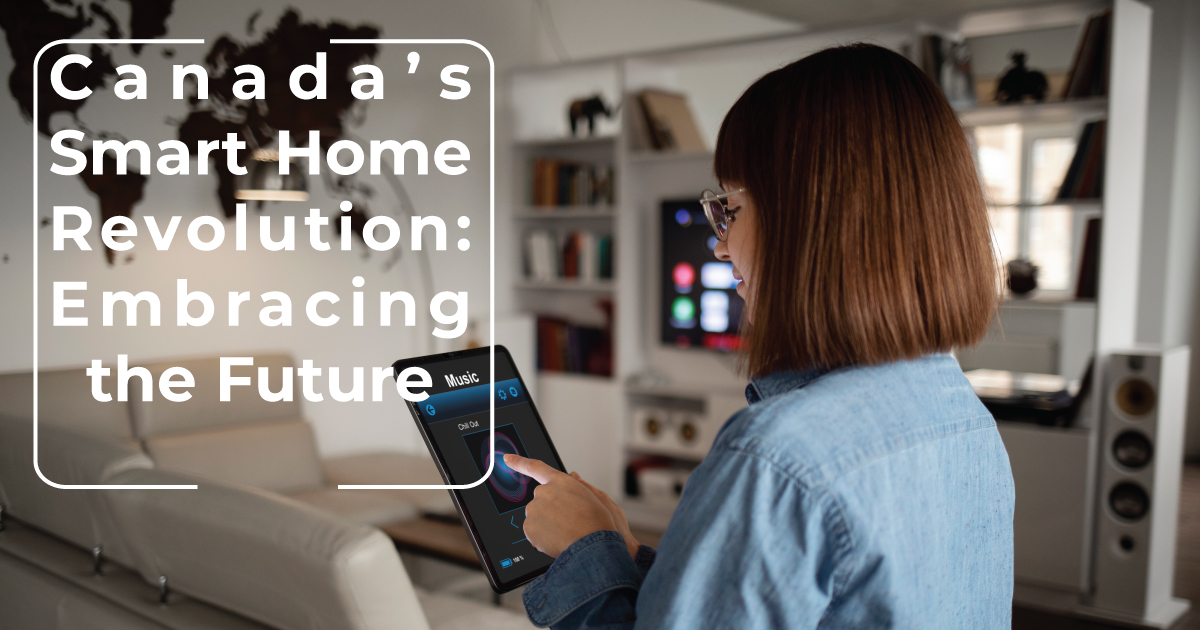Canada is at the forefront of a digital transformation that is reshaping how people live, work, and interact with their homes. From coast to coast, smart home technology is becoming increasingly integrated into everyday life, turning ordinary residences into intelligent, connected living spaces. This evolution, known as the Smart Home Revolution, is not only about convenience—it’s about sustainability, security, and shaping a more efficient future for Canadian households.
What Is Driving Canada’s Smart Home Boom?
Several factors are fueling the growth of smart home adoption in Canada:
Rising Tech Awareness: With increased internet penetration and tech-savvy consumers, Canadians are more open to adopting smart devices—from thermostats and lighting systems to voice assistants and AI-powered security.
Environmental Concerns: Smart homes offer tools for better energy management, helping reduce consumption and carbon footprints. Products like Nest thermostats, smart plugs, and energy-monitoring apps are empowering Canadians to live greener.
Aging Population & Safety Needs: As Canada’s population ages, smart home technologies are being used to promote independent living. Motion sensors, remote monitoring, and fall detection devices are making homes safer for seniors.
Government Incentives & Infrastructure: Initiatives supporting smart infrastructure, green energy, and 5G connectivity are laying the groundwork for smarter cities and homes across the country.
Key Smart Home Technologies Gaining Ground
Smart Thermostats and HVAC Systems
Canadians face extreme temperatures across seasons, making climate control a top priority. Smart thermostats like ecobee (a Canadian innovation) and Nest help regulate home temperatures based on occupancy and weather forecasts—maximizing comfort and minimizing costs.Voice Assistants and Automation
Devices like Amazon Alexa, Google Assistant, and Apple HomeKit are enabling voice-controlled lighting, music, security systems, and even coffee machines. Automation is not just about luxury—it’s now a standard for convenience.Smart Security and Surveillance
As urbanization increases, so do security concerns. Canadians are adopting smart locks, video doorbells (like Ring), motion sensors, and integrated security systems to ensure peace of mind.Energy Management Tools
Solar panels integrated with smart grids, electric vehicle (EV) chargers, and real-time usage trackers are helping homeowners cut energy costs and reduce environmental impact.Connected Appliances and Health Devices
Refrigerators that track groceries, ovens that can be controlled remotely, and air quality monitors are improving health and wellness in the home.
The Future of Smart Living in Canada
The Canadian smart home market is projected to surpass $6 billion by 2026, according to industry analysts. As AI, IoT (Internet of Things), and 5G technology continue to evolve, homes will become even more responsive, predictive, and personalized.
Integration with Renewable Energy:
Smart homes will increasingly align with Canada’s sustainability goals—using AI to optimize solar usage, reduce emissions, and support off-grid capabilities.
Interoperability and Open Platforms:
The industry is moving toward unified platforms that allow devices from different manufacturers to work seamlessly together, driven by initiatives like Matter, a universal smart home standard.
Real Estate Innovation:
Smart home readiness is becoming a key selling point in real estate. Developers are including built-in automation, EV chargers, and sustainable design as standard features in new builds.
Challenges and Considerations
Despite its rapid growth, Canada’s smart home movement faces challenges:
Privacy & Data Security: With more devices collecting user data, Canadians are increasingly concerned about how their information is stored and shared.
Affordability: Some smart technologies remain expensive, limiting access for lower-income households.
Digital Literacy: Ensuring all age groups can comfortably use and benefit from smart technology is an ongoing need.
Conclusion
Canada’s Altium360 smart home revolution is not just a trend—it’s a cultural and technological shift that’s reshaping how people experience their homes. As innovation continues and infrastructure strengthens, Canadians are embracing a future where their homes are not only more efficient and secure, but also more attuned to their individual needs and environmental responsibilities.
Welcome to the future of living—smart, sustainable, and uniquely Canadian.

